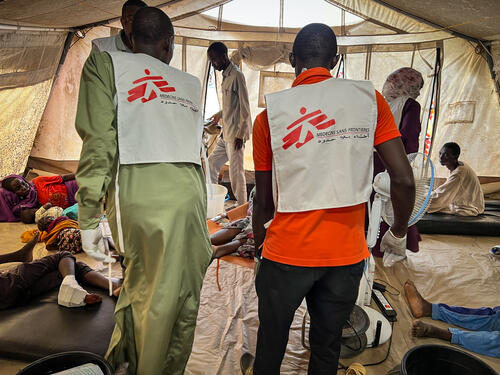Gaza: MSF teams resume activities in Gaza City
Médecins Sans Frontières / Doctors Without Borders (MSF) was forced to leave Gaza City on 24 September 2025 amid the intensified Israeli offensive. Following the start of the ceasefire on 10 October, more than 402,488* displaced people were recorded moving from south to north, according to the Population Movement Monitoring Flash Update.
After careful monitoring and assessment, MSF has partially resumed its activities there, as we continue striving to go where patients are.
On 15 October, MSF reopened its wound care clinic in Gaza City. Since then, our teams have received more than 640 patients — the majority of them with trauma-related injuries. Many had been without access to proper wound care and dressings for weeks. MSF also continues to remotely support Al-Helou Maternity Hospital and Al-Shifa Hospital with incentives, supplies and fuel.
One of the facilities where we had to suspend activities, at the beginning of September, was the Primary Healthcare Centre we supported in Sheikh Radwan.
When our teams returned to the area last week, they found the facility partially destroyed, leaving the community without a crucial source of medical care.

Our work saves lives
As of 14 October, MSF also resumed water trucking in Gaza City. For nine consecutive days, we have been providing between 90,000 and 180,000 litres of drinking water per day, across 9 to 14 distribution sites.
We are currently assessing the possibility of further expanding these operations, as more people return from the south and face limited access to safe water in Gaza City.
* These figures reflect population flows rather than permanent returns, as not everyone making the journey stays in the north.
MSF and the Gaza genocide
As of October 2025, over 67,000 people have been killed in Gaza, including 15 MSF staff.
Prior to the ceasefire, our teams have seen: the deliberate targeting of medics and hospitals; the use of starvation as a weapon of war with a blockade starving people of food, water, fuel and medical supplies; the militarisation of aid, and the massacre of starving people queuing for aid.
